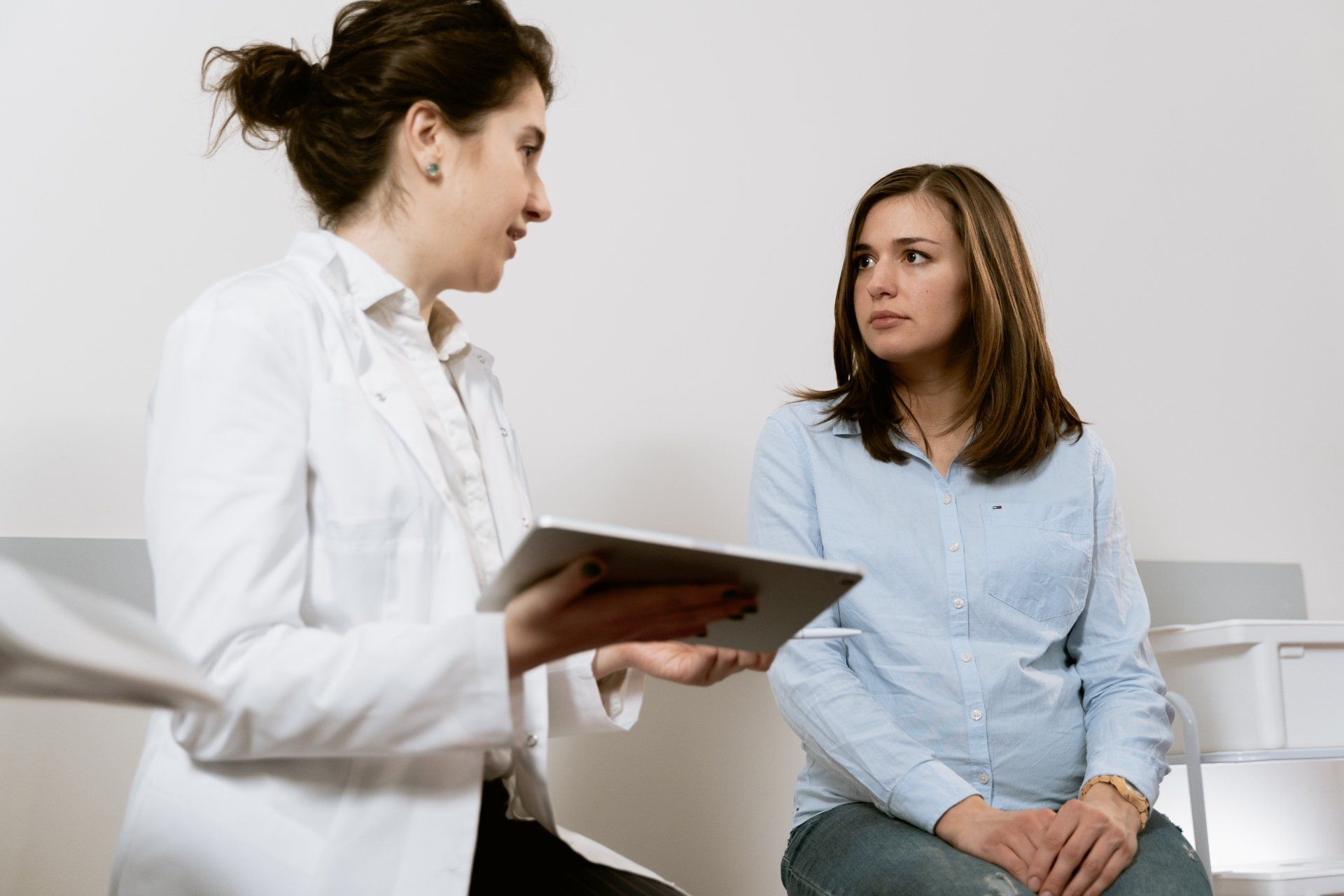Could Your Gut Be Sabotaging Your Hormone Therapy Results?
You thought you found all the answers, right? You’ve been diligently doing your hormone replacement therapy, eating well, exercising… but several months in, you feel more exhausted, and something still feels off.

Maybe the hot flashes have persisted, your mood swings haven't stabilized, or that stubborn weight still refuses to budge. If this sounds like what you’re experiencing, it might be time to do a little more investigating, particularly into the health of your gut.
The Gut-Hormone Connection
Our gut isn't just responsible for digesting the food that we eat - it also plays a foundational role in hormone regulation, which is why we end up talking about it so much during our hormone appointments! The gut microbiome is a complex community of trillions of microorganisms. It influences your overall metabolism and helps balance hormones like estrogen, progesterone, and cortisol, thus impacting mood, stress, sleep, and so much more. An imbalance in your gut, or dysbiosis, can cause disruptions and symptoms that run the whole gamut of your health.
At the end of the day, your gut health could be interfering with your hormone replacement therapy (HRT), and potentially dulling its effects. The good news? Now that you know, you can take action to promote a happy gut, which will also help your hormones and can be less daunting than you’d think!
Why Gut Health Matters When You're on HRT
Let’s talk about estrogen for a second. A specific subset of your gut bacteria - aptly named estrobolome - plays a necessary role in estrogen regulation as outlined by the National Institute of Health. When your gut is in good shape, your body uses what it needs and safely eliminates the rest. But if your estrobolome is out of balance? Your body may end up recirculating excess estrogen or not utilizing it efficiently, leading to hormone imbalances despite being on the "right" therapy.
This is just one example of why we so often recommend gut support for patients receiving HRT here in Green Cove Springs. It’s not just estrogen - A compromised gut can affect how your body handles cortisol (your stress hormone), insulin (which affects weight gain and energy), and even testosterone.
If you're not getting the results you were hoping for from HRT, your gut health might be worth a more detailed conversation with your provider!
Signs Your Gut Might Be Undermining Your Hormone Therapy
If you’re wondering, “Wait - could this be me?”... here are a few symptoms that we often ask patients about that are worth paying attention to:
- Persistent bloating or gas
- Fatigue, even after you get a full night’s sleep
- Stubborn weight gain, particularly around your midsection
- Mood swings or anxiety that don’t seem to improve
- Hormone therapy side effects that feel worse instead of better
- Skin issues including acne, dryness, or rashes
- You still have trouble sleeping
Some of these symptoms very well may have been what brought you into a doctor’s office to learn more about hormone replacement therapy to begin with! They can definitely be signs that your gut is inflamed, imbalanced, or just not absorbing nutrients and hormones the way it should.
What Can You Do to Support Your Gut (and therefore your hormones)?
If this sounds like your situation, here’s the good news: you can do a lot to support your gut and improve how your body responds to HRT.
1. Focus on Gut-Friendly Foods
Fill your plate with fiber-rich vegetables, leafy greens, fermented foods (like kimchi, sauerkraut, or plain kefir), and whole grains. These nourish your gut bacteria and support healthy digestion.
Avoid ultra-processed foods and excess sugar, particularly artificial varieties, which often feed the wrong types of bacteria and can increase inflammation.
2. Manage Stress (For Real)
Stress actually can reduce healthy gut bacteria and increase intestinal permeability (hello, leaky gut). Stress can also come in all sorts of shapes and forms… It is important to consider all forms. Consider building in regular stress-reducing habits - like walking in nature, going to bed an hour earlier every night, reducing screen time, or yoga. Certain supplements can also help the body better manage stress, so make sure to check with us at your next visit if you think this is playing a role!
3. Consider Probiotics & Digestive Support
Probiotics definitely aren’t one-size-fits-all, but for many of our patients in Jacksonville and surrounding areas, targeted supplementation can help rebalance the microbiome. Depending on your symptoms, we may also recommend digestive enzymes or prebiotics, and specific labwork can also help us identify the best supplement options to consider.
4. IV Hydration Therapy
Did you know nutrient deficiencies can make gut issues - and hormone symptoms - worse? If your digestive system is impaired, your absorption of critical vitamins like B12, magnesium, and vitamin D may be too. IV Hydration Therapy can be a much needed boost for specific vitamins that can absolutely affect energy levels, sleep quality, how well your body handles stress, and much more.
5. Don’t Skip Testing
If you’ve been feeling off and haven’t had your gut function actually assessed with labwork, let’s change that. At our practice, we offer targeted gut testing that helps us see what’s really going on. While sometimes it might seem nice to just try out a vitamin or a medication to see if it helps, we find that many of our clients have already thrown 9 solutions at the wall to see which one sticks, and we pride ourselves in being extremely targeted in our approach!
When to Reach Out
Whether you’re just starting hormone therapy or you’ve been on it for a while without seeing results, trust your gut (pun intended!) You also don’t have to be feeling absolutely dreadful to deserve answers - feeling bloated, sluggish, or just “off” is reason enough to have a conversation about it.
Our hormone replacement clinic in Green Cove Springs combines functional medicine, hormone therapy, and gut health strategies to help you feel like yourself again. If you're from Jacksonville or anywhere nearby and want a more complete approach to your care - we're here for you.
Always feel free to
contact us with questions or to set up your first appointment. We look forward to seeing you!











